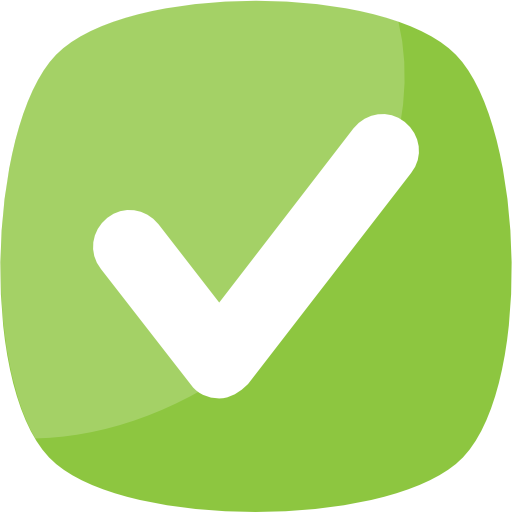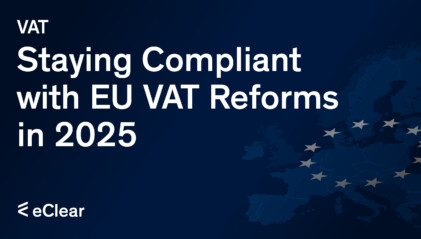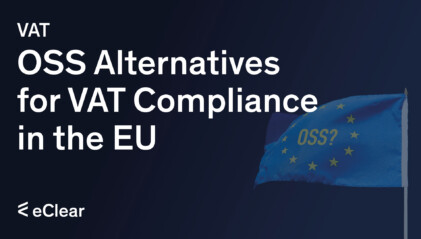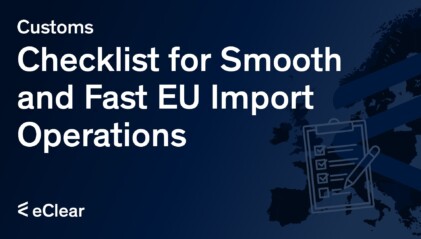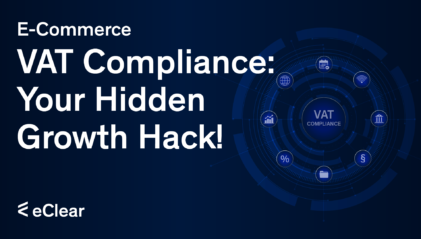Switzerland’s unique VAT landscape presents both opportunities and challenges for businesses. We’ll cover everything you need to know about the country’s VAT history, rates, exemptions, registration, and compliance, equipping you with valuable insights for success in the Swiss market. Join us as we demystify the VAT system in Switzerland, one step at a time.
In 1995, Switzerland introduced the value-added tax (Mehrwertsteuer or TVA in German and French, respectively) to replace the previous federal turnover tax. Administered by the Swiss Federal Tax Administration (FTA), the VAT system plays a pivotal role in Switzerland’s economy as a consumption tax, levied on goods and services at each stage of the supply chain.

VAT rates
Standard Rate (8.1% – Normalsatz)
The standard VAT rate of 8.1% applies to a wide range of goods and services, including but not limited to:
- Clothing and footwear
- Electronic devices and appliances
- Furniture and home accessories
- Professional services (e.g., legal and consulting services)
Special Rate (3.8% – Sondersatz)
The special VAT rate of 3.8% is primarily applied to accommodation services. This category covers:
- Hotel stays and lodging services
- Bed and breakfast establishments
- Short-term flat rentals
- Holiday accommodations
Reduced Rate (2.6% – ermässigter Steuersatz)
The reduced VAT rate of 2.6% targets essential goods and services to make them more affordable for the general public. Examples of items subject to this rate include:
- Food and non-alcoholic beverages
- Water supply
- Pharmaceutical products (prescription drugs)
- Newspapers, magazines, and books
VAT Exemptions
In Switzerland, certain goods and services are exempt from value-added tax (Mehrwertsteuer or TVA), which can significantly impact businesses in these sectors. Commonly exempt goods and services include:
- Medical services (e.g., provided by doctors, dentists, and physiotherapists)
- Educational services offered by public institutions and certain private institutions
- Financial services and insurance
- Postal services provided by the Swiss Post
- Cultural services, such as those offered by museums, libraries, and theatres
VAT exemptions can have significant implications for businesses. On the one hand, companies providing exempt goods or services are not required to charge VAT, making their offerings more competitive. On the other hand, these businesses cannot claim input tax deductions for the VAT they incur on their expenses, which may result in higher operating costs.
VAT Registration
The following vital aspects must be considered when registering for VAT in Switzerland:
Registration Threshold
Switzerland has a VAT registration threshold of CHF 100,000 in annual turnover. Businesses exceeding this threshold are required to register for VAT, while those below may opt for voluntary registration.
Registration Process
To register for VAT, businesses must complete the registration form provided by the Swiss Federal Tax Administration (FTA). The form can be found on the FTA’s dedicated VAT registration and deregistration page. In addition to the completed form, businesses must submit documentation, such as company registration and proof of business activity, to the FTA.
Swiss VAT Number
Businesses will be assigned a Swiss VAT number (Mehrwertsteuernummer or numéro de TVA) upon successful VAT registration. This unique identifier must be included on all VAT-related documents, such as invoices and tax returns, to ensure compliance with Swiss tax regulations.
Compliance and Reporting
Adhering to the Swiss VAT regulations is essential for businesses operating in Switzerland, as non-compliance can lead to penalties, financial consequences, and reputational damage. To ensure VAT compliance and accurate reporting, companies must consider the following key aspects:
Charging Appropriate VAT Rates
Businesses are required to apply the correct VAT rates (Normalsatz, ermässigter Steuersatz, or Sondersatz) to their goods and services, as specified by the Swiss Federal Tax Administration (FTA).
VAT-Compliant Invoicing
Invoices must meet Swiss VAT requirements, including displaying the Swiss VAT number (Mehrwertsteuernummer or numéro de TVA), the invoicing party’s name and address, the recipient’s name and address, a description of goods or services, the date of issue, and the applicable VAT rate(s) and amount(s). The FTA provides guidelines on proper invoicing.
Filing Regular VAT Returns
Businesses must submit VAT returns to the FTA regularly, typically quarterly. These returns detail the amount of VAT collected and paid by the company during the reporting period.
Paying VAT Due
Upon filing their VAT returns, businesses must pay any outstanding VAT amounts to the FTA. Failure to do so may result in penalties and interest charges. Companies must have a solid understanding of their VAT liabilities and ensure timely payments to the FTA.
Input Tax Refund
A vital aspect of the Swiss VAT system is the concept of input tax deduction, which enables businesses to claim a refund for the VAT they have paid on business-related expenses. To effectively manage input tax refunds in Switzerland, companies must consider the following key components:
Concept of Input Tax Deduction
Input tax is the VAT businesses pay on goods and services purchased for use in their taxable activities. Swiss VAT-registered companies can typically claim a refund for input tax paid, reducing their overall VAT liability. This system ensures that VAT is levied only on the added value at each stage of the supply chain.
Conditions for Claiming Input Tax Refund
To claim an input tax refund, businesses must meet specific criteria outlined by the Swiss Federal Tax Administration (FTA). Companies can claim input tax refunds if:
- They are VAT-registered in Switzerland
- The goods or services purchased are used for taxable activities
- They possess valid VAT invoices for the expenses incurred
Process of Claiming Input Tax Refund
To claim an input tax refund, businesses must include the relevant information in their VAT returns, detailing the input tax paid and the corresponding expenses. The FTA will then review the VAT return and, if approved, refund the input tax amount to the business. Maintaining accurate records of VAT invoices and expenses is crucial to ensure a smooth refund process.
B2B and B2C Deliveries of Goods and Services
The VAT treatment for business-to-business (B2B) and business-to-consumer (B2C) deliveries of goods and services in Switzerland varies based on several factors. Key aspects to consider include the following:
B2B Deliveries
In B2B transactions within Switzerland, the supplier charges the applicable VAT rate (Normalsatz, ermässigter Steuersatz, or Sondersatz) on the goods or services. The purchasing business can then claim an input tax deduction for the VAT paid if they meet the necessary conditions. The reverse-charge mechanism often applies for cross-border B2B transactions, whereby the recipient business is responsible for accounting for the VAT due in their country.
B2C Deliveries
For B2C transactions within Switzerland, businesses must charge the appropriate Swiss VAT rate on the goods or services supplied. In cross-border B2C transactions, companies may be required to register for VAT in the customer’s country and charge the local VAT rate, depending on the nature of the goods or services provided and the destination country’s VAT registration threshold.
Special Considerations for Cross-Border Transactions
In cross-border transactions, businesses must be mindful of the destination country’s VAT regulations, relevant customs duties and import taxes.
Invoicing and E-Invoicing
Key aspects to consider include Swiss invoicing requirements, the adoption of e-invoicing, and the benefits it offers to businesses.
Swiss Invoicing Requirements
Swiss VAT regulations stipulate specific requirements for invoicing, which include displaying the Swiss VAT number (Mehrwertsteuernummer or numéro de TVA), the invoicing party’s name and address, the recipient’s name and address, a description of goods or services, the date of issue, and the applicable VAT rate(s) and amount(s). The Swiss Federal Tax Administration (FTA) provides guidelines for invoicing.
Adoption of E-Invoicing
Businesses in Switzerland are increasingly adopting electronic invoicing (e-invoicing), as it offers a more efficient and environmentally friendly alternative to paper invoicing. While there are no specific legal requirements for e-invoicing in Switzerland, businesses must ensure that electronic invoices meet the same criteria as their paper counterparts. Additionally, electronic invoices must be stored digitally in a tamper-proof and easily accessible format.
VAT Reporting
Effective VAT reporting helps maintain compliance with tax regulations and avoid potential financial and legal consequences. Key aspects to consider include types of VAT reporting, the importance of accurate reporting, and VAT service providers and software solutions.
Types of VAT Reporting
In Switzerland, businesses are typically required to file quarterly VAT returns, which detail the VAT charged on sales and the input tax paid on purchases. Additionally, companies engaging in cross-border transactions may need to submit periodic Intrastat declarations and European Sales Listings (ESL) to the Swiss Federal Tax Administration (FTA).
Importance of Accurate Reporting
Accurate VAT reporting is crucial for businesses. It helps ensure compliance with Swiss tax regulations, avoid penalties, and manage cash flow effectively. Companies must maintain proper records of their VAT transactions and submit timely and accurate VAT returns, Intrastat declarations, and ESLs as required.
VAT Service Providers and Software Solutions
To streamline VAT reporting and ensure compliance, businesses can leverage the expertise of VAT service providers and utilize specialized software solutions. VAT service providers help with VAT registration, filing returns, and managing cross-border transactions. On the other hand, software solutions can automate the calculation of VAT liabilities, generate compliant invoices, and facilitate accurate and timely reporting.
Regional Peculiarities
Switzerland is a federal state comprising twenty-six cantons, each with its constitution and tax laws. While VAT is a federal tax, it is essential for businesses operating in Switzerland to be aware of regional peculiarities regarding VAT, which may affect the overall tax burden.
Swiss Cantonal VAT Regulations
VAT in Switzerland is primarily governed by federal legislation, and the Swiss Federal Tax Administration (FTA) is responsible for administering and collecting VAT throughout the country. As a result, the VAT rates and rules remain uniform across all cantons. However, businesses should be aware of cantonal and municipal taxes that may indirectly impact the overall tax burden, such as corporate income tax, property tax, and capital tax.
Cantonal Tax Authorities
Each canton has its tax authority, responsible for administering cantonal and municipal taxes.


